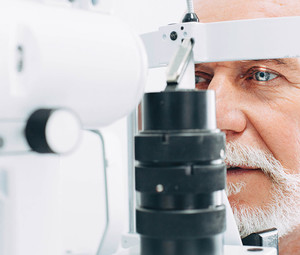All Categories
Featured
Table of Contents

Routine eye assessments are necessary for maintaining good vision and discovering potential eye health concerns early. The regularity of these exams can vary substantially based on an individual's age, lifestyle, and general health. Comprehending the advised timetable for eye tests can aid ensure that individuals of any ages get appropriate care and monitoring for their eye health.
Newborns and Toddlers (0-2 Years)
For infants and toddlers, eye exams are crucial for identifying any type of prospective vision issues at an early stage. The American Academy of Ophthalmology suggests that a child's first eye exam must happen at around 6 months of age. During this initial browse through, the eye treatment specialist will certainly assess the youngster's visual advancement and check for any kind of apparent eye issues.Following this first exam, it is advised that youngsters have an additional eye test at age three. This check out will certainly concentrate on assessing the child's general aesthetic feature, including eye positioning and the capability to track items. If no concerns are found, the following exam must be scheduled before the kid begins college, typically around age five or 6.
School-Aged Youngsters (6-18 Years)
Once kids reach institution age, normal eye examinations must be arranged each to two years. Vision is critical for learning and advancement, and many schools carry out vision screenings. Nonetheless, these testings do not change a comprehensive eye examination by an eye care professional.For children involved in sports or tasks calling for substantial aesthetic emphasis, annual eye exams might be a good idea. Furthermore, if a child shows signs of vision issues-- such as problem checking out, squinting, or frequent frustrations-- a check out to the eye doctor should be set up immediately.
Young Person (19-39 Years)
Youthful adults usually have less vision adjustments than older age, but regular eye tests continue to be essential. The general suggestion is to set up an eye exam every 2 years throughout this duration. Nevertheless, people with particular danger variables-- such as a family background of eye condition, diabetes, or those who wear get in touch with lenses-- ought to take into consideration yearly eye tests.Furthermore, those that spend significant time on digital tools might experience electronic eye strain. If signs and symptoms such as dry skin, exhaustion, or blurred vision occur, it might be a good idea to see an eye care expert sooner.
Adults (40-64 Years)
As individuals go into center age, the chance of creating vision troubles rises. Adults aged 40 to 64 must set up eye exams every one to two years. This age might begin to experience presbyopia, an all-natural age-related condition that makes it testing to concentrate on close things. Eye examinations can additionally aid discover other typical age-related conditions such as glaucoma, cataracts, and macular deterioration.If individuals in this age team have danger variables like hypertension or diabetes, they might need even more constant exams to check their eye health carefully.
Seniors (65 Years and Older)
For elders, regular eye tests become a lot more critical. The American Optometric Organization recommends that people aged 65 and older have an eye exam at least yearly. Older grownups are at a greater risk for numerous eye illness, including cataracts, glaucoma, and age-related macular deterioration. Early detection and treatment of these problems can stop vision loss and boost the lifestyle.Final thought.
Comprehending the appropriate routine for eye tests based on age is crucial for keeping optimal eye wellness throughout life. By adhering to these guidelines and seeking advice from with an eye care specialist, individuals can take aggressive steps towards maintaining their vision and overall health and wellness.Table of Contents
Latest Posts
Grab Special Auto Repair Deals in Chicago at Montclare Auto Repair
Published en
1 min read
Learn How to Save Big on Car Maintenance with Montclare Auto Repair’s Limited-Time Deals
Published en
1 min read
Unlock WyHy Federal Credit Union – Key Advantages for Your Money Goals
Published en
1 min read
More
Latest Posts
Grab Special Auto Repair Deals in Chicago at Montclare Auto Repair
Published May 26, 25
1 min read
Learn How to Save Big on Car Maintenance with Montclare Auto Repair’s Limited-Time Deals
Published May 26, 25
1 min read
Unlock WyHy Federal Credit Union – Key Advantages for Your Money Goals
Published May 24, 25
1 min read